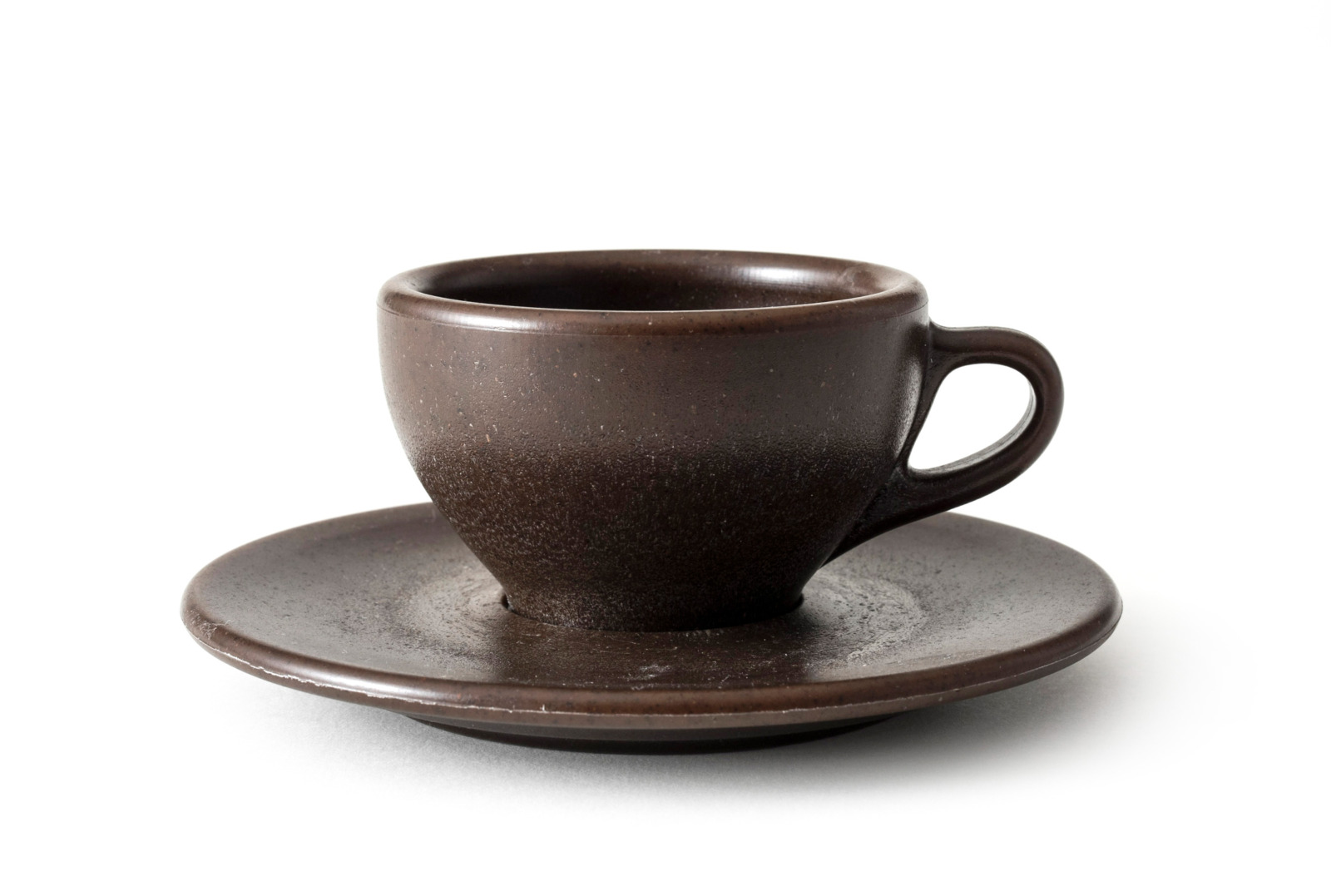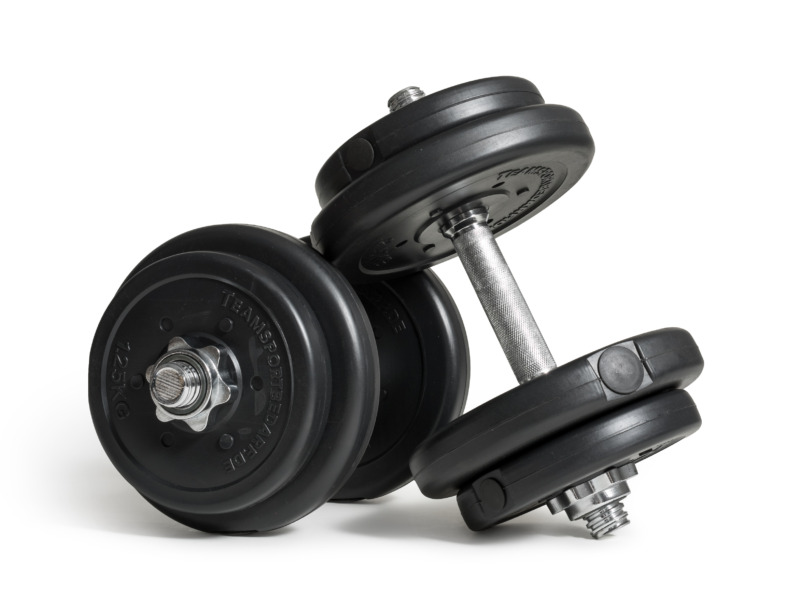Since 2015 the Berlin-based company Kaffeeform has been producing primarily cups from coffee grounds which come from local cafés and partners. The waste product is picked up by a bicycle collective, the products are manufactured in collaboration with workshops and small companies in Berlin and Germany.
This espresso cup dates from the company’s early years and by now it is difficult to obtain since it is no longer sold by the manufacturer. What is impressive about the company’s products is the approach to creating something new and durable from supposed waste, while making the entire process ecologically and socially sustainable. The coffee grounds are combined with recycled wood fibers and a biopolymer – a plastic found in plants – and pressed into the desired shape. The final product is robust and even dishwasher safe. The material though is not compostable since the products are intended for long-term use. Currently, it can only be disposed of with household waste. However, a return system is being worked on so that the material can be used again for production.
In 2016, this espresso cup became part of the material box „Gute und nützliche Dinge aus nachhaltigen Werkstoffen“ (“Good and useful things made from sustainable materials”) which was put together as part of the exhibition “Object Lessons”. For this project the Werkbundkiste (“Werkbund box”) „Schönes Gerät aus Kunststoff“ (“Beautiful plastic device”) served as a model as well as a comparison. As part of its program to improve product quality and to educate people in taste, the German Werkbund developed the Werbundkisten in the 1950s and 60s. They were loaned out to schools as teaching aids for art and craft lessons. Whereas at that time, long-lasting, high-quality materials and “Die gute Form” (“the good form”) – a functional, objective and yet aesthetic design – were the decisive factors in the selection of the objects, the project from 2016 focuses on material composition and production. It takes a critical look at the cup made from coffee grounds which is supposed to be the perfect product according to current standards since it is ecologically, economically and socially sustainable. The project discusses the problem that the manufacturer does not disclose the exact composition of the non-biodegradable plastic which makes consumers dependent on their advertising texts as a source of information.


